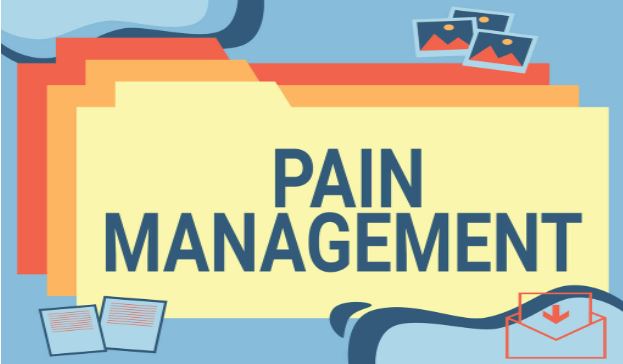Medication Management Strategies to Take Control of Your Health
Create a Medication Schedule
Creating a regular medication schedule is an important step in managing your health and ensuring you take the right medications at the right time. By following a consistent medication schedule, you can make sure that your body is getting the medicines it needs to stay healthy and functioning properly.
There are several steps to creating a successful medication schedule. The first medication management tips is to talk with your doctor or pharmacist about all of your medications, including over-the-counter drugs and herbal supplements. Make sure they understand all of the different medicines you are taking so they can help create an appropriate schedule for when you should be taking them.
Once you have discussed your medications with your healthcare provider, it’s important to create a plan for when and how often you will take them each day. Set reminders on your phone or calendar app so that you don’t forget any doses throughout the day. You should also make sure that there is someone available who can help remind or assist you if necessary, such as family members or friends who live nearby and understand when it’s time for medications each day.
It’s also important to keep track of any changes in dosage or frequency as prescribed by your doctor, so be sure to write down any new instructions.
Keep Track of All Medications Taken
Taking medications can be an important part of keeping yourself healthy. But with dozens of different medications and doses to remember, it’s easy to get confused or forget a dose. That’s why it’s important to keep track of all the medications you take.
The first step in keeping track of your medications is to make a list of all the medicines you’re taking. Include both prescription and over-the-counter drugs, as well as vitamins, supplements, and herbal remedies. For each medication, note the name, dosage form (pill, liquid), strength (number milligrams or other measurement), frequency (how often you take it), and how much you take each time. If you have any special instructions on how or when to take your medicine, write them down too.
Next, make sure that this list is kept up-to-date by adding any new medications as soon as they are prescribed for you and removing any that are no longer being taken regularly. Also update the list if there are changes in dosage or frequency for any existing medications on your list. It’s also helpful to note when refills are due so that you don’t run out before getting another prescription filled at the pharmacy.
Know the Purpose and Side Effects of Each Medication
Medications are an important part of treating many health conditions. However, it is important to understand the purpose and potential side effects of any medication before taking it. Knowing the potential risks and benefits can help ensure that you take medications safely and effectively.
The purpose of a medication is its intended effect on your body when taken as prescribed. For example, some medications are used to reduce inflammation or lower blood pressure, while others may be used to suppress an immune response or treat a chronic condition such as diabetes or depression. It is important to understand why your doctor has prescribed a particular medication so you can use it correctly and achieve the desired outcome.
It is also essential to be aware of potential side effects associated with any medication you take. These can range from mild reactions such as nausea or headaches, to more serious issues such as muscle weakness or increased risk for certain types of cancer. Some medications have known interactions with other drugs and supplements which could increase the risk for adverse reactions even further so always tell your doctor about all other medications you are taking before starting a new one.
It may also be helpful to stay informed about new research surrounding specific medications which could lead to changes in dosage recommendations or warnings against using them in certain situations due to newly discovered risks.
Store Medications Properly
Are you uncertain about how to store your medications? It is important to understand the importance of proper storage and follow these simple steps.
Medication storage is essential for a variety of reasons. Improper storage can lead to contamination, degradation, and other issues that can be dangerous or even life-threatening. Additionally, incorrect medication storage may decrease the effectiveness of certain medications over time.
The first step in storing medications properly is making sure that all containers are tightly sealed and away from direct sunlight. Exposure to light and air can reduce the potency of certain drugs over time, so keep them in a cool, dry area out of direct sunlight if possible. Additionally, it’s important to keep all medications away from children or pets who could accidentally ingest them if they were left out in the open or within reach.
The temperature at which you store your medication matters as well—certain drugs require refrigeration while others should not be stored below room temperature for extended periods of time as this could potentially render them ineffective or unsafe for use. It’s best to consult with your healthcare provider on how best to store any particular drug before using it; they will likely provide specific instructions on how best to do so based on its ingredients and other characteristics.
Be Aware of Any Allergies or Interactions Between Medications
It is important to be aware of any allergies or interactions between medications when taking multiple medications. Taking multiple medications can have a cumulative effect on your body and may cause side effects, such as nausea, dizziness, and drowsiness. Additionally, some drugs may interfere with the effectiveness of other drugs or cause an allergic reaction.
In order to minimize risk and get the most out of your medication regimen, it is important to understand how different medications interact with each other. A healthcare provider should review all current prescriptions and over-the-counter drugs in order to identify potential interactions or allergies. This includes prescription vitamins and supplements as well as herbal remedies that may also interact with certain medications.
If you are prescribed a new medication, it is important to ask your doctor about possible drug interactions and tell them about any known allergies or adverse reactions that you have experienced in the past when taking certain types of medication. It is also beneficial to inform them about any vitamins or supplements that you use regularly so they can ensure there are no adverse effects when combined with prescribed medication.
It is critical for patients who are taking multiple medicines to keep an up-to-date list of all their prescriptions along with dosages, frequency of administration, side effects associated with each medicine.
Follow Directions for Taking the Medication Exactly as Prescribed
Taking medications exactly as prescribed is a critical component of any medical treatment plan. Proper adherence to medication instructions can make a significant difference in the effectiveness of treatment and even help reduce the risk of adverse side effects. Following directions for taking your medication is one of the simplest and most important things you can do for yourself or your loved ones to ensure successful health outcomes.
When starting any new medication, it is important to read through the directions carefully and ask your doctor or pharmacist if you have questions about anything that’s unclear. Make sure you understand how much to take, when to take it, what other medications or supplements can interact with it, and possible side effects associated with it. It’s also important to know how long you will be taking the medication – some may be short-term while others may require long-term use depending on your condition.
Once you start taking the medication, make sure you follow all instructions as closely as possible. This includes not taking more than prescribed or missing doses without speaking with your doctor first—doing so could reduce its effectiveness or increase the risk of certain side effects like nausea, dizziness, etc..
Set Up Reminders for When to Take Medications
If you are taking multiple medications, it can be difficult to remember when to take each one. Fortunately, there are several methods that can help you keep track of them. Setting up reminders is a great way to ensure that you never miss a dose.
Reminders can come in many forms, including alarms on your phone or watch; sticky notes placed around your home; and even apps that send notifications when it’s time to take your medication. Alarms on phones or watches are ideal for people who need reminders throughout the day, while sticky notes and apps may be better for those who only need occasional reminders.
To set up an alarm on your phone or watch, simply enter the time of day you want the reminder to go off into the settings menu. You can also customize messages such as “time for your medication” so that they appear when the alarm goes off. If you prefer a physical reminder, stickies placed around your house serve as visual cues and make sure you don’t forget anything important! Finally, there are many free medication reminder apps available that allow users to enter their prescriptions and dosage information, so they get notifications when it’s time take their medicine—some even have refill reminders built-in as well!
Talk to Your Doctor About Questions or Concerns Regarding Medications
It’s important to talk to your doctor when you have any questions or concerns regarding medications. Taking medications can be a difficult process, and it’s important that you understand all the details of what you’re taking and how best to use them.
Your doctor can provide answers to any questions you have about your medication, as well as provide advice and guidance on how best to take it. This could include information on dosage, possible side effects, drug interactions, and other general safety concerns. They may also be able to suggest alternate treatments or therapies if the medication isn’t suitable for your particular needs.
It’s also important that your doctor is aware of any other medications you are taking, including prescription drugs and over-the-counter products like vitamins or herbal supplements. Some combinations of drugs may not interact well together, so it’s essential that they know everything about what substances are entering your body in order for them to make an informed decision about your treatment plan.
When talking with your doctor about medications, be sure to inform them of any allergies or sensitivities that you may have so that they can adjust the treatment accordingly if necessary. Also tell them if there are certain foods or activities which could interact with the drug in a negative way.
Seek Immediate Medical Attention if Experiencing an Adverse Reaction
It is important to seek immediate medical attention if you are experiencing an adverse reaction. An adverse reaction is any unexpected side effect that is caused by taking a medication or being exposed to a certain substance. Adverse reactions can range from mild symptoms such as skin rash or hives, to life threatening conditions such as anaphylactic shock. It is important to be aware of the signs and symptoms of an adverse reaction and take action quickly if you experience any of them.
The most common type of adverse reaction is an allergic reaction. Allergic reactions can occur after taking a medication, eating certain foods, or coming into contact with something in the environment that your body perceives as dangerous. Symptoms may include itching and swelling at the site of exposure, hives, difficulty breathing, nausea, vomiting and/or diarrhea. If you experience any of these symptoms it is important to seek medical attention right away because they can worsen over time if not treated quickly enough.
Other types of adverse reactions include drug interactions which can occur when two drugs interact with each other in a way that causes unexpected side effects such as dizziness or drowsiness; overdose which happens when too much medication has been taken; and toxic shock syndrome which occurs due to infection from bacteria found in tampons.
Seek Regular Reviews with Your Doctor to Assess the Effectiveness and Safety of All Current Prescriptions
It is important for individuals to have regular reviews with their doctor to assess the effectiveness and safety of all current prescriptions. This can help catch any potential problems before they become major health issues, while also ensuring that you are taking the right medications for your needs.
Having a review with your doctor will allow them to take an in-depth look at all of the medications that you are currently taking and make sure that they are still the most effective option for your treatment. Your doctor will be able to discuss any potential side effects or drug interactions, as well as any new treatments that may be available. They can also check if there have been any changes in dosage or formulation since you last had a review.
Regular reviews provide an opportunity for doctors to adjust dosages, switch medications, or add additional treatments as needed. This can help ensure that you continue receiving optimal care and benefit from your medication regimen without experiencing unnecessary side effects or complications due to incorrect dosing instructions or incorrect combination of drugs and supplements.
In addition, regular reviews give doctors an opportunity to monitor how well certain drugs work for each individual patient, which allows them to make changes if necessary, based on individual needs and circumstances. This can lead to more effective treatment outcomes overall since medications are being





